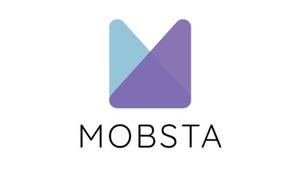
“The Idea Is The Most Powerful Profit Multiplier”

Mobsta is a proud supporter of LBB. As part of its sponsorship of the ‘Brand Insight’ and 'Media' channels, we’re exploring audience and media trends, discovering what brands and media experts think makes audiences tick in 2023 and beyond.
Drawing from his extensive experience in the media industry, Simon Orpin has developed a deep understanding of what drives audience behaviour and engagement. In this insightful interview, Simon shares his unique perspective on the evolution of audience data, the role of targeting in effective marketing campaigns, and the importance of sustainability in the media landscape. He discusses his personal journey and offers valuable insights into emerging trends and practices that can make a meaningful impact on the industry. Here, we gain a fresh perspective on the world of media and audience engagement, as seen through Simon's seasoned lens.
LBB> Simon, tell us a bit about yourself and how you arrived to where you are
Simon> I qualified as a marine biologist with a degree in Plymouth in 1985 but quickly realised that there were not many Jacques Cousteau type opportunities around in those days and, instead, began a media career at ITV in the commercial team at Anglia Television. This was the start of a 25-year journey with the broadcaster, latterly as the planning director of the UK business from 2006 to 2010. Having launched the Yeo Valley 'Rapping Farmers' campaign in ITV’s X Factor in a deal with Kevin Brown at BBH, we began to think that the unique approach we developed for that partnership could form the basis of a new type of media agency. As a result, we formed our current business, Electric Glue.
Our purpose is to help clients scale their businesses by navigating a media environment of ever-increasing complexity. We do this through our simple, effective guiding principle of “Sacrifice” – by which we mean that we encourage our clients to do fewer, bigger and better things that have a real impact with their customers, in their sector and on their businesses. It means that we work with media owners as true business partners by connecting our clients into multiple areas of their media ecosystems, driving greater engagement and exceptional value.
We also work alongside creative agencies to ensure our media thinking is a force to liberate their ideas, not suffocate them. Who we are, the way we think and the work we deliver makes us a very different kind of media agency. We say we compete, but we don't compare.
LBB> GDPR laws are evolving in a way which means limitations on the data available to businesses. How can companies best leverage the information accessible to them?
Simon> Ultimately it is about developing a sharper focus. Work to gather (and thereby enrich) all your (brands’) first-party-owned data into a single space. Be aware of consent and build systems in place to ensure you clearly understand what you have and how to unify it – because often different business units have different data sets. A single uniform point of truth is key.
Then look to partner with other data sources through media- or data-partnerships that allow you to enrich and expand. Where possible, understand the models used to apply these data sets – that will allow you to evaluate and take ownership of your opted-in data, enabling you to use it to evaluate the accuracy and relevance of data sourced from other providers.
If needed, seek external support and be willing to redesign flows around a true understanding of data value. With GDPR restrictions in place, a good data strategy, if done right, gives you an ever-greater competitive advantage.
LBB> In the realm of media strategy, having a thorough comprehension of the available data and how to optimise it is crucial. What factors related to shifts in data legislation are you monitoring, and how do you advise clients to stay informed?
Simon> Different media channels have different targeting options. All too often, there is a priority on addressable data sets, and while these are key for certain strategies, they may lack the scale needed for the granular accuracy that marketers would like. So it’s worth pursuing the sorts of non-addressable data which can actually be incredibly actionable. Travel distance to stores, hourly splits of when people buy products, email marketing scheduling, sales teams’ feedback on barriers to purchase, stock levels, profitability – there are a huge number of factors that go into understanding an audience. And while addressable media is hugely valuable, it can be scarce and doesn't make up the full picture.
Within the media space, there has been a huge reliance on cookie-based targeting – and the ending of this era will impact not just targeting but also measurement. Many platforms that have sold a performance-based outcome are now having to pivot or look for other solutions. Ultimately, we do believe this is valuable, in that it will nudge everyone back to reaffirming the basic rules of judging media quality – but it’s also true that understanding user behaviour and the journeys they make is valuable.
Building your own models for audience targeting and marketing measurement will be key to regaining control of your media and making informed decisions.
LBB> What strategies can be used to capture the attention of an audience in an era of overwhelming information overload?
Simon> Creativity drives everything. The idea is the most powerful profit multiplier, as proven in a number of studies. Media creativity and innovation is the necessary bed partner for a brilliant idea to bring it to life in the most engaging manner.
Given our chairman is Sir John Hegarty then maybe people may think that we would say this but the proof is in the pudding (and our case histories) as much as our DNA. As John said in our “Media is an art, not an algorithm” initiative, it matters what you say and It matters where you say it.
Maybe as a case in point about the power of a memorable idea was Jeremy Clarkson’s farm manager Kaleb breaking into an unprompted rendition of the Yeo Valley Rap in the first episode of the new series of Clarkson’s Farm on Amazon Prime, fully 13 years after the commercial aired.
LBB> What trend in media strategy circles that you’re getting tired of hearing about? Tell us why?
Simon> The notion (still) that it’s all about programmatic. That it’s all about a data driven solution.” Programmatic can become problematic. Machine learning via the latest “Black Box” execution can lead a brand into a commercial black hole. One that can damage reputation and profit in equal measure.
We love algorithms but they are only as good as the humans that create them. Now, more than ever, the human touch is crucial. We need people who understand the nuances of our increasingly complicated world. Extracting these nuances is an art form and, so far, there is no algorithm that can generate the magic that great creative and media thinking in tandem can.
A machine-driven solution in a complex world can be misleading. As Nietzsche said, “They muddy the water to make it look deep” – which, given he died 123 years ago, was a prescient observation indeed.
LBB> What would you say are some of the key considerations for clients wanting to make sure they buy media with sustainability goals in mind?
Simon> We believe, firstly that it’s important to collaborate with like-minded agencies and partners that align to your values. And you must consider your supply chain - can a supplier offer you a service that goes above and beyond to take their carbon footprint into consideration? Transparency is crucial. And it’s not just about environmental goals. We’re strong believers in other aspects too – like an awareness of the importance of governance and social impact.
LBB> What are your thoughts on the issue of data ethics as it relates to usage in marketing?
Simon> An over-reliance on addressable data based on unique identifiers and the measurement of individual outcomes has led to use of data within platforms that all too often can be seen as unethical. The ability to hide behind algorithms hasn't helped. Every brand has a responsibility to understand to some level their data strategy, whether run in-house or activated on their behalf. And media companies likewise have a responsibility to be able to explain this in clear language, without hiding behind technical jargon. We also believe that moving towards behavioural modelling, where we target the characteristic of users rather than a unique identifier, is sensible in managing this. Measurement and assigning correct value is instrumental in shifting this mindset, and we work closely with clients on this.












